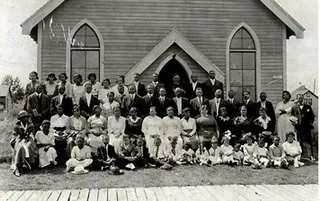Biggest Moments in Black History
The end of slavery, election of Barack Obama and more.




Next Gallery
Where Are They Now: The Cast of In Living Color
13 Photos
1 / 28
The Atlantic Slave Trade in America: 1528-1807 - From the end of slavery to America's first Black president, BET.com counts down the the most influential moments in Black history. — BET Staff The importation of slaves is outlawed in the United States, ending the brutal and exploitive system that forcibly moved more than half a million slaves from Africa to the United States. (Photo: Hulton Archive/Getty Images)
ADVERTISEMENT